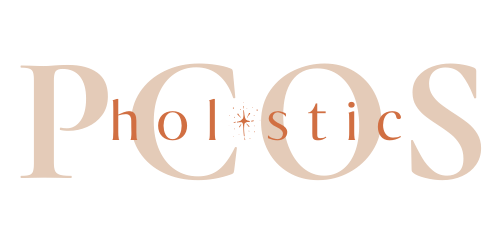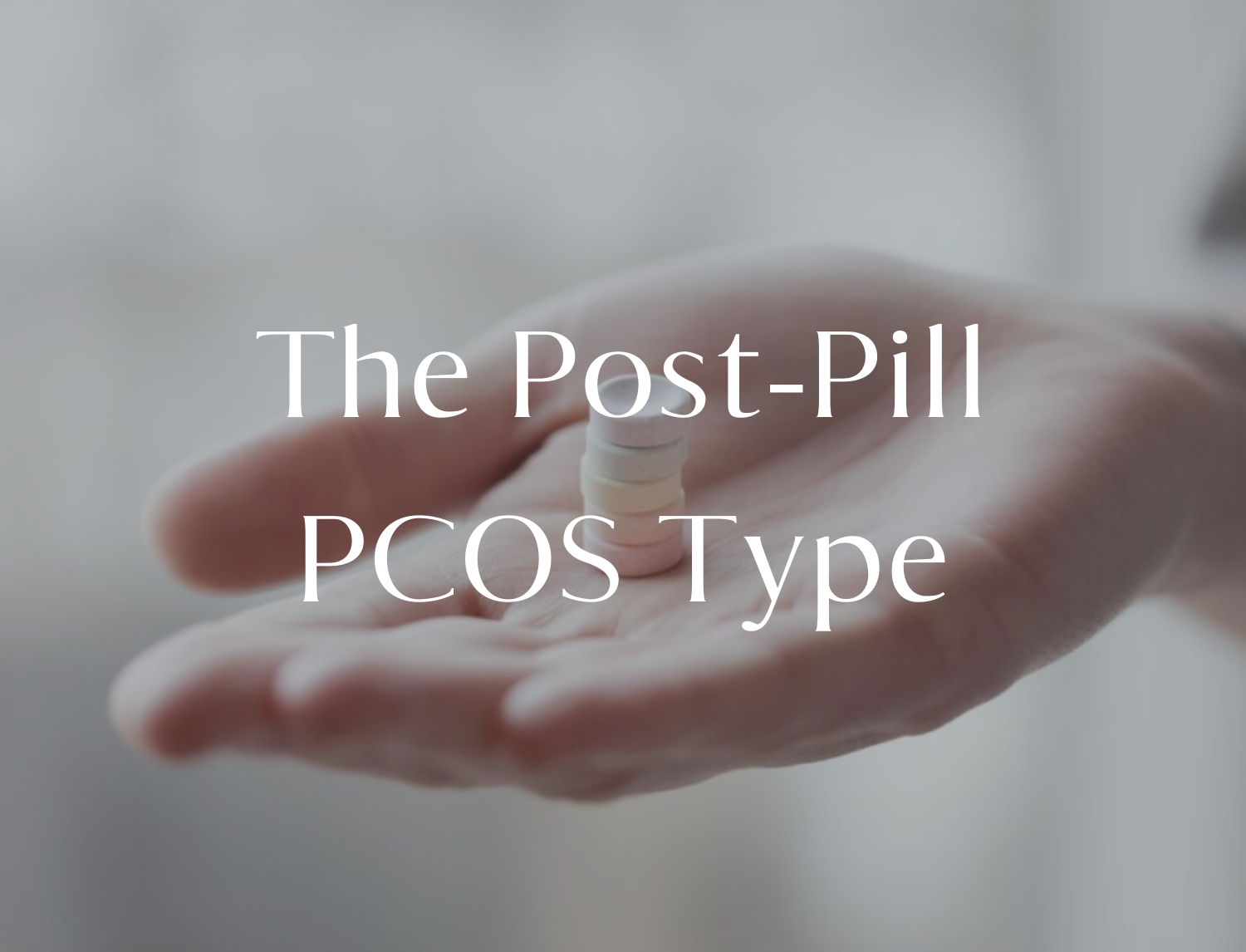PCOS Types 101: Post-Pill PCOS
"Wait, really?? Post-pill PCOS?"
Yep! While hormonal birth control (HBC) can be an incredibly helpful and empowering tool for many, it also has its downsides for PCOS. Coming off the pill can cause symptoms that qualify you for a PCOS diagnosis (and may actually worsen the underlying symptoms you sought treatment for in the first place if you were previously diagnosed with PCOS). This happens for a few reasons:
Insulin Resistance. As we’ve seen with the Insulin PCOS Type, insulin resistance drives PCOS symptoms. And guess what can worsen insulin resistance? Hormonal birth control. (Studies here and here)
Suppressed Ovulation. Hormonal birth control works as a contraceptive by suppressing ovulation altogether. For most women, ovulation will return as soon as they stop their HBC. However, for some, ovulation may not return for months or even years, qualifying you for a PCOS diagnosis.
Androgen Rebound. People with PCOS who have recently come off of hormonal birth control in the last 2 years can sometimes experience what's called an "androgen-rebound." This means that, while your brain + hormonal system are coming back online after being artificially regulated for so long, things can be a bit bumpy. Your body may actually respond with a temporary surge in androgens, the "male" hormones that are responsible for most of our symptoms (think: acne, irregular periods, hirsutism/chin hairs, hair loss, etc). This is especially true if you were on a low-androgen index formulation, such as Yasmin®. In this case, your androgens should come back down within a year or two.
PS - Not sure which one is your PCOS Type? Take our 2-minute quiz before you dive in:
You qualify as the Post-Pill Type if you:
Have irregular periods
Have high androgens (ex: testosterone, DHEA, androstenedione, etc.)
You do not have insulin resistance
You did not have irregular cycles or high androgens prior to starting hormonal birth control
You may also have a high LH (Luteinizing Hormone) to FSH (Follicle Stimulating Hormone) ratio. In this case, LH prevents the ovarian follicles from developing properly and signals them to make androgens, so it’s always helpful to ask your doctor to test for it.
In the long run, it's important to have an understanding of how to address all of the root causes, including insulin resistance, thyroid issues, inflammation, stress, other hormonal imbalances, and gut imbalances.
This doesn't mean the other PCOS Factors like insulin or inflammation aren't contributing, but it's best to get a handle on recovering from hormonal birth control (HBC) first.
So what should you do about it?
While your best bet is to join us in our groundbreaking, evidence-based program, the Holistic PCOS Method™ to learn how to manage the other big symptom drivers, here are 3 quick tips to start managing Inflammatory PCOS in the meantime:
Three Tips for Recovering from Post-Pill PCOS
1. Manage Your Stress
Chronically high stress typically worsens hormonal imbalances, including post-pill PCOS. Chronic stress will often prolong your healing timeline, so it's best to identify the biggest sources of stress in your life. Consider setting new boundaries on your time and energy, and start meditation or practicing mindfulness or yoga for at least 10 minutes a day. We cover more in-depth methods to manage stress inside our course, the Holistic PCOS Method™
2. Replete Your Nutrients + Eat Enough Calories.
The pill depletes a number of key nutrients that help balance hormones, including B vitamins, magnesium, and more. It's important to eat a wide range of whole foods (think: Eat the Rainbow!) and to eat enough. In order to bring our cycles back regularly, we need to be eating enough calories to ovulate properly. Crash dieting or restrictive eating can halt ovulation and prevent your periods from coming back.
3. Exercise.
Regular exercise helps to balance hormones, especially when we find that healthy intersection between movement that challenges us and movement that restores us. Remember that over-exercising can also halt ovulation and keep your periods from regulating. We recommend starting with 3 days of morning walks and some form of strength training before increasing the intensity and frequency.
Bonus Tip: Sign up to be the first to hear when the Holistic PCOS Method™ reopens!
Like most people with PCOS, you probably have other underlying root causes that are contributing to your symptoms. Not to mention, your root causes can change as you (and your diet & lifestyle) change! That's why it's important to take an individualized approach to treatment and learn how to combat each of these root causes.
The good news is, that’s exactly what we do inside the Holistic PCOS Method™, our leading 12-week program for people with PCOS. Sign up below to be the first to hear when we re-open enrollment!

